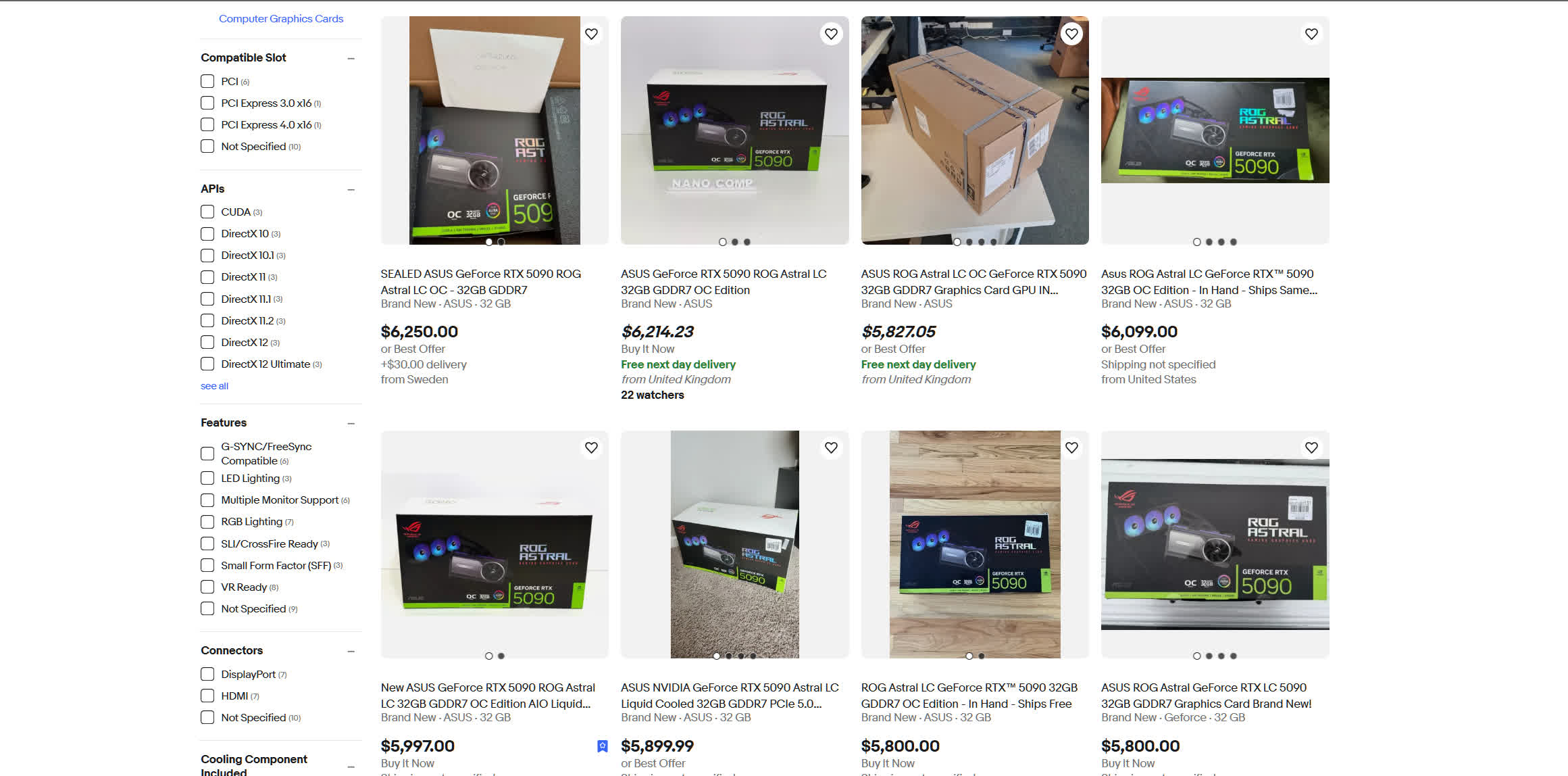A hot potato: With the current demand for graphics cards combined with the low stock levels, it seems people will pay almost anything for an RTX 5000-series GPU. There appears to be no limit to what consumers will accept, as illustrated by the $3,719 Asus RTX 5090 cards that came into stock at Micro Center but were sold out just hours later.
Third-party manufacturers have been pushing the prices of their Blackwell cards higher and higher recently, making a mockery of Nvidia’s MSRPs.
Earlier this month, Asus, which is already well-known for its expensive models, raised the prices of its RTX 5090 and AMD RX 9070 cards. The cost of a ROG Astra LC (Liquid Cooled) RTX 5090 was raised to $3,409 on the company’s online store.
That amount of money is quite ridiculous, more so when you consider the RTX 5090’s $1,999 MSRP.
A redditor called pagusas posted an image of a display at Micro Center Dallas filled with RTX 5090 Astral LC cards, explaining that “tons” had arrived that day. It initially seemed that with a selling price of $3,720, people just weren’t willing to pay that much money. One commentator confirmed that the cards were also in stock at Houston Micro Center at the same price.
Pagusas writes that there were also “tons” of RTX 5080s in stock at Dallas Micro Center.
Microcenter Dallas got tons of 5090 Astral Liquid’s in today
byu/pagusas innvidia
However, a quick search of the stock levels at the Dallas and Houston stores shows all the cards are now sold out. The only RTX 5090 GPU at Dallas is inside a $4,899 laptop, while Houston also has a $5,499 pre-built PC with one of the cards. It’s a similar situation with the RTX 5080s.
Despite coming close to $4,000 at the store, the RTX 5090 Astral LC is still obviously more expensive on eBay. The auction site’s listings range from around $4,300 to a ridiculous $6,250. It’s these prices, and the fact some people must be buying them from resellers, that are exacerbating the problem, making the cards all the more appealing to scalpers.
Asus isn’t the only company guilty of pushing up the prices of its Blackwell cards. MSI did the same thing earlier this year, adding hundreds of dollars to the prices in some cases.
Earlier this week, Zotac joined the others in hiking its RTX 5090 prices, with two of its models increasing a whopping $500. The company no longer lists any cards at MSRP, either.
While companies are quick to point at tariffs on Chinese imports, increased manufacturing costs, and other reasons out of their control for why the cards are so expensive, many argue they are charging these prices simply because they know people will pay them.
Source link
